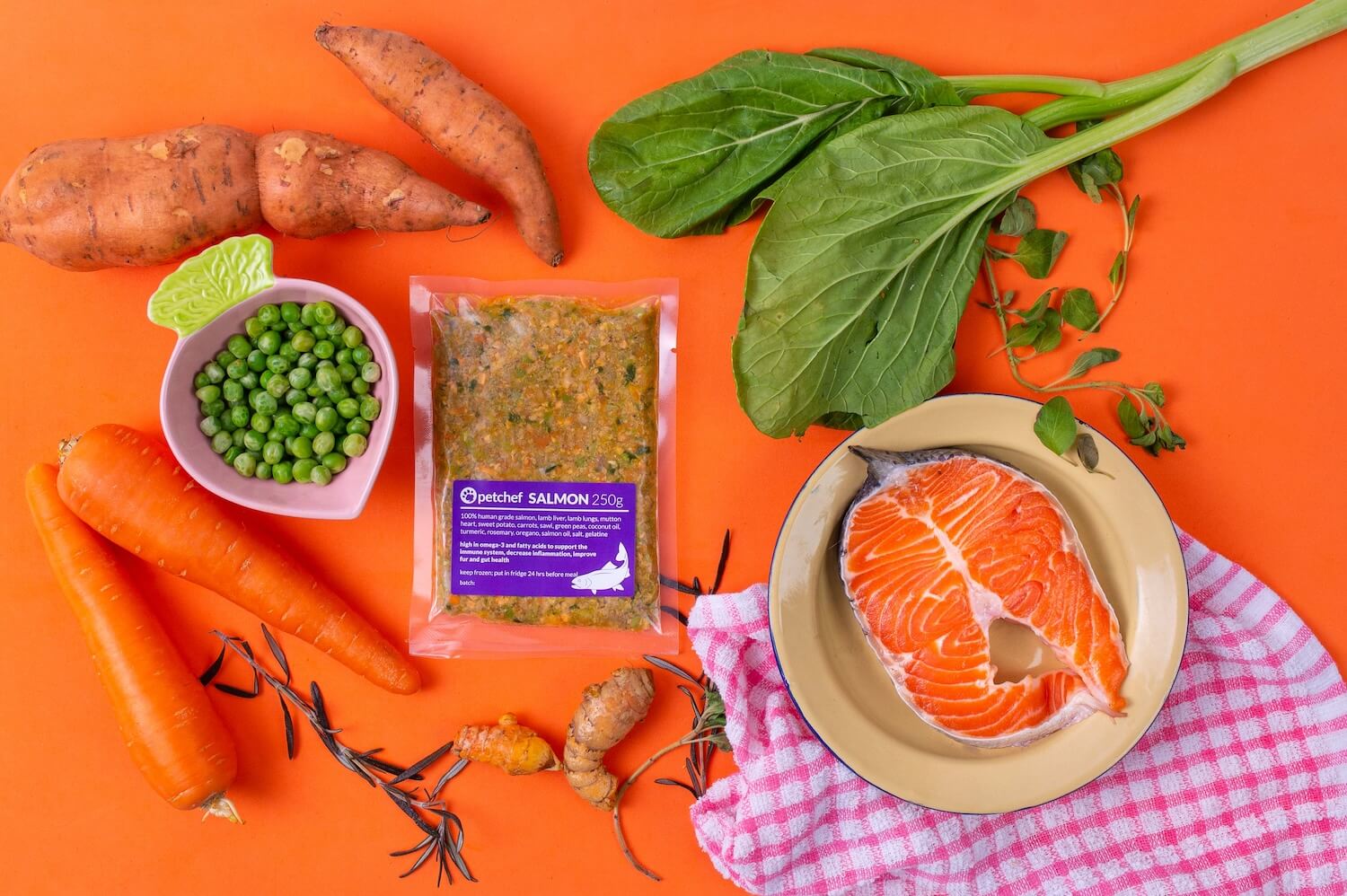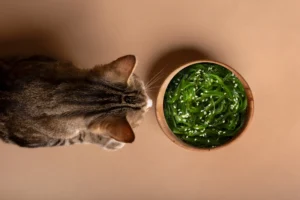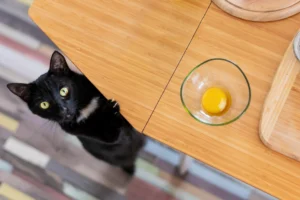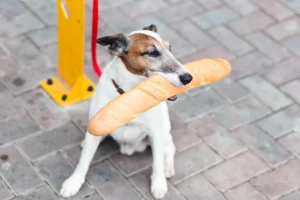As responsible cat parents, it’s only right that we ensure our cats are not only happy and adorable, but are also in their optimal health. That being said, overweight, fat or round animals are one of the internet’s obsessions. We seem to find their loaf-like appearance and uncle-like belly amusing and adorable.
However, living in an unhealthy weight-range comes with its fair share of health problems in both humans and animals.
Obesity in cats increases the risk of cancer and diseases like diabetes, liver disease, arthritis, urinary problems, pancreatitis, gastrointestinal diseases, lameness, and skin problems. They would also experience a decreased quality of life due to the reduced mobility and activities.
But first things first,
Is Your Cat A Chonky Boi?
Similar to dogs, you can roughly gauge if your cat is fit, fat or fluffy by looking at their body shape and feeling for certain parts of their body.
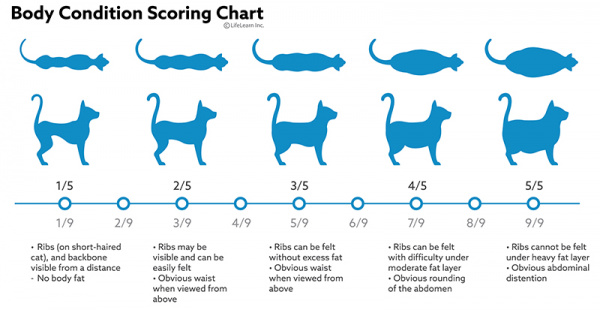
Image Credit: VCA Hospitals
An ideally weighed cat should be around the 5/9 score and have:
- A visible waist when viewed from above
- Easily palpable ribs with a thin layer of fat, it should feel like when you run your fingers across your knuckles
- No obvious rounded belly when seated or standing
- Tucked abdomen when viewed from the side
- Palpable hips and backbone without having to press too hard
If your cat is on the heaviest end of the spectrum, it might look like the “oh lawd he comin” cat meme, otherwise endearingly known as a chonk.
Causes Of Weight Gain In Cats
Besides female cats having a higher tendency to gain more weight than male cats, the common causes of weight-gain in cats can be attributed to a few factors such as:
- Overfeeding: An overestimate in portion size and daily calorie requirements leads to the body storing these extra nutrients as fats if they’re not burned off through exercise.
- Free-feeding: Leaving a dish full of food or kibbles throughout the day allows your cat to eat outside of mealtimes which causes overeating.
- Ageing: Older cats that may have joint or health issues may become less active, thus leading to weight gain.
- Lack of exercise: Similar to humans, a sedentary lifestyle provides little to no opportunity for fats consumed to be worked off.
- Spaying or Neutering: This medical procedure has shown to decrease a cat’s metabolism thus causing more fats to be stored particularly in their abdomen.
However, if you have been regularly getting your cat active and controlling their diet, there are also other causes such as illnesses and parasites. Medical conditions such as hypothyroidism, intestinal disease, diabetes, feline hyperadrenocorticism, liver disease and urinary tract disease can cause weight gain. Plus, some long term medications can also cause weight gain.
The presence of internal parasites may cause potbellies in cats due to fluid build up around the infestation. This would usually make the belly feel hard rather than a soft fatty blob.
Regardless, you should always check with your vet if something looks and feels amiss on your cat’s physical appearance.
Helping Your Cat Get Back Into Shape
Cats may stare at their own reflections in the mirror but they may not necessarily know that they are getting chonky and therefore you need to do something about it.
To get your cat back into shape and looking healthy again, it takes teamwork from you, your household, a vet and a pet nutritionist.
Here are some tips:
1. Portion control
Speak to a our Petchef Advisor to determine the ideal portion size and daily calorie requirements for your cat’s food. Rather than fill them up with kibble or carbohydrate loaded fillers, a more balanced diet with tasty ingredients would provide them with the beneficial and necessary nutrients.
2. Cutting down on treats
Depending on your vet’s advice, cat treats should only be fed sparingly and not used as meal replacements. This also regulates their eating habits thus making it easier to control their daily calorie intake.
Make sure that everyone in your household is on board with this plan too so that no one is sneaking treats to your cat.
3. Get active
If your pet doesn’t seem too motivated to move and get active on their own, another fun way to get them active is to play with them. Interactive play time with your cat can be as simple as getting them to chase or leap after their favourite toy.
Or you could teach your cat how to take short walks with you. Fresh air and a short 15-minute walk twice a day could be beneficial to us and our cats 😉
-//-
Changing up your pet’s diet and routine habits can have positive effects on their well-being. However, it should always be introduced gradually.
Cats that lose too much weight too quickly can develop fatty liver disease otherwise known as hepatic lipidosis. Or a sudden change in habit might even stress them out.
Hence, you should consult a veterinarian before going on with the weight loss plan. Feel free to speak to our friendly Petchef Advisors if you’d like to examine or improve your cat’s nutrition and diet.




